| S.No | Name of the Faculty Member | Designation | Date of Joining | Qualification | Nature of Appointment |
| 1 | Dr. M.APPA RAO | HOD & Professor | 19-07-2023 | Ph.D. | Regular |
| 2 | Dr. M.KOTESWARA RAO | Associate Professor | 04-07-2022 | Ph.D. | Regular |
| 3 | Dr. M.RAJASEKHAR | Associate Professor | 22-03-2021 | Ph.D. | Regular |
| 4 | Dr. D.ANIL KUMAR | Assistant Professor | 28-10-2019 | Ph.D. | Regular |
| 5 | Dr. SK.SUBHANI | Assistant Professor | 16-11-2020 | Ph.D. | Regular |
| 6 | Dr.P.UDAYBHASKAR | Assistant Professor | 03-02-2023 | Ph.D. | Regular |
| 7 | Dr. M.VENKATESWARA RAO | Assistant Professor | 18-08-2022 | Ph.D | Regular |
| 8 | Dr KAVURI VIJAYA CHANDRA | Assistant Professor | 22-01-2024 | Ph.D | Regular |
| 9 | Dr. G.ERNA | Assistant Professor | 02-03-2022 | Ph.D. | Regular |
| 10 | N.DURGA PARAMESWARA RAO | Assistant Professor | 18-06-2015 | M.Tech(Ph.D) | Regular |
| 11 | D.K.KAVITHA | Assistant Professor | 28-09-2020 | M.Tech(Ph.D) | Regular |
| 12 | M.RAJA KUMAR | Assistant Professor | 18-10-2021 | M.Tech(Ph.D) | Regular |
| 13 | M.S.MANOHAR | Assistant Professor | 15-11-2018 | M.Tech(Ph.D) | Regular |
| 14 | T.SRIRAM MURTHY | Assistant Professor | 22-03-2021 | M.Tech(Ph.D) | Regular |
| 15 | G.VIJAY KIRAN | Assistant Professor | 10-04-2023 | M.Tech(Ph.D) | Regular |
| 16 | S.CH.KANTHA RAO | Assistant Professor | 23-05-2013 | M.Tech(Ph.D) | Regular |
| 17 | N VAISHNAVI | Assistant Professor | 01-05-2018 | ME | Regular |
| 18 | K.SURESH BABU | Assistant Professor | 27-05-2013 | ME | Regular |
| 19 | K.NAGARAJU | Assistant Professor | 01-06-2017 | M.Tech | Regular |
| 20 | R.KOTESWARA RAO | Assistant Professor | 28-09-2020 | M.Tech | Regular |
| 21 | S.ARUNA SRI | Assistant Professor | 01-10-2021 | M.Tech | Regular |
| 22 | B.ALEKYA | Assistant Professor | 18-10-2021 | M.Tech | Regular |
| 23 | T.HARI BABU | Assistant Professor | 01-07-2022 | M.Tech | Regular |
| 24 | K.LAVANYA | Assistant Professor | 10-08-2022 | M.Tech | Regular |
| 25 | K.SRINIVASA RAO | Assistant Professor | 13-04-2022 | M.Tech | Regular |
| 26 | B.SRINIVASA GANESH | Assistant Professor | 20-05-2013 | M.Tech | Regular |
| 27 | M.GAYATHRI | Assistant Professor | 15-10-2015 | M.Tech | Regular |
| 28 | S.JOSAPH | Assistant Professor | 23-01-2020 | M.Tech | Regular |
| 29 | P.UDAY KUMAR | Assistant Professor | 30-09-2020 | M.Tech | Regular |
| 30 | K.LAKSHMI NARASAMMA | Assistant Professor | 01-12-2020 | M.Tech | Regular |
| 31 | V .VISHNU VARDHAN | Assistant Professor | 21-10-2020 | M.Tech | Regular |
| 32 | F.ASA JYOTHI | Assistant Professor | 25-09-2020 | M.Tech | Regular |
| 33 | Y.ANUSHA | Assistant Professor | 18-07-2023 | M.Tech | Regular |
| 34 | P.KARTHEEK | Assistant Professor | 24-07-2023 | M.Tech | Regular |
| 35 | P.GOWRI SANKAR | Assistant Professor | 18-07-2023 | M.Tech | Regular |
| 36 | P.SudheerChakravarthi | Assistant Professor | 30-10-2023 | M.Tech | Regular |
| 37 | Ch.Manasa | Assistant Professor | 01-10-2021 | M.Tech | Regular |
| 38 | K.SRAVANI | Assistant Professor | 28-09-2020 | M.Tech | Regular |
| 39 | H.DIVYA | Assistant Professor | 01-11-2023 | M.Tech | Regular |
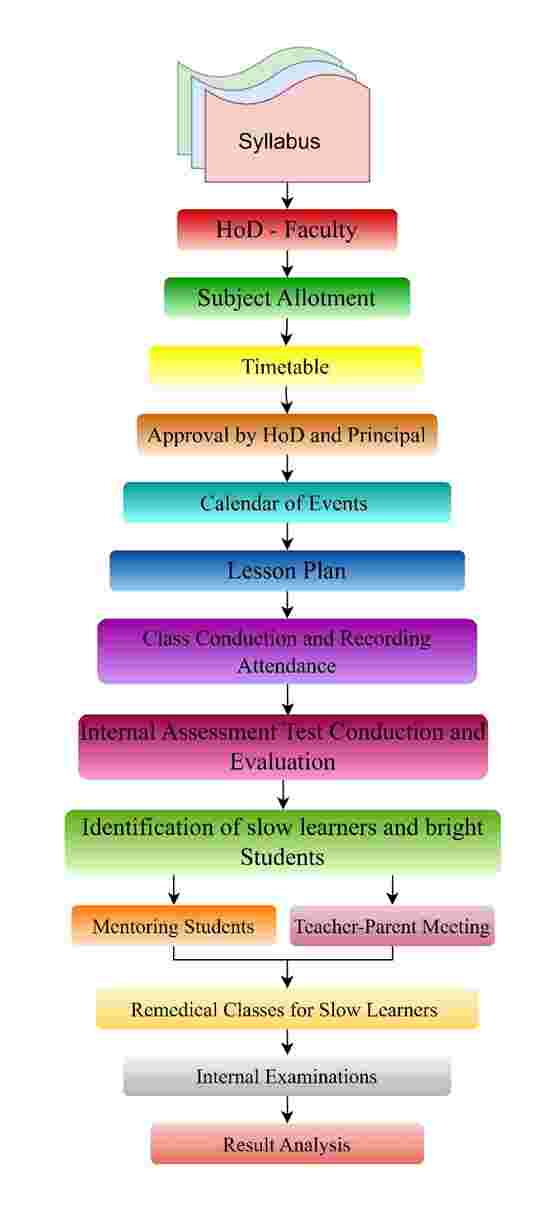
To excel in education, research and to prepare the students for the benefit of the society and bring out quality professionals in the field of Electronics and Communication Engineering.
| M1. | To impart quality technical education in the area of Electronics and Communication Engineering to make the student a professional graduate engineer by implementing excellent teaching and learning methodologies |
| M2. | To train the students on latest technologies to meet the growing challenges of the industry |
| M3. | To develop talented and committed human resources and to provide an environment for innovative, creative, leadership and team spirit. |
| M4. | To equip the students with strong fundamentals and to enable them to continue the education. |
| PEO No | Description |
| PEO 1 | Graduates will be successful as Professionals, Researchers or Entrepreneurs in Electronics and Communication Engineering discipline. |
| PEO 2 | Graduates will be updated continuously with the state-of-the-art technologies through academic and non-academic education in order to provide sustainable solutions. |
| PEO 3 | Graduates will demonstrate ethical and social responsibilities as an Individual and as a team member in diverse culture. |
| PO1 | Engineering knowledge | Engineering knowledge: Apply the knowledge of mathematics, science, engineering fundamentals, and an engineering specialization to the solution of complex engineering problems. |
| PO2 | Problem analysis | Problem analysis: Identify, formulate, review research literature, and analyze complex engineering problems reaching substantiated conclusions using first principles of mathematics, natural sciences, and engineering sciences. |
| PO3 | Design/development of solutions | Design/development of solutions: Design solutions for complex engineering problems and design system components or processes that meet the specified needs with appropriate consideration for the public health and safety, and the cultural, societal, and environmental considerations. |
| PO4 | Conduct investigations of complex problems | Conduct investigations of complex problems: Use research-based knowledge and research methods including design of experiments, analysis and interpretation of data, and synthesis of the information to provide valid conclusions. |
| PO5 | Modern tool usage | Modern tool usage: Create, select, and apply appropriate techniques, resources, and modern engineering and IT tools including prediction and modeling to complex engineering activities with an understanding of the limitations. |
| PO6 | The engineer and society | The engineer and society: Apply reasoning informed by the contextual knowledge to assess societal, health, safety, legal and cultural issues and the consequent responsibilities relevant to the professional engineering practice. |
| PO7 | Environment and sustainability | Environment and sustainability: Understand the impact of the professional engineering solutions in societal and environmental contexts, and demonstrate the knowledge of, and need for sustainable development |
| PO8 | Ethics | Ethics: Apply ethical principles and commit to professional ethics and responsibilities and norms of the engineering practice. |
| PO9 | Individual and team work | Individual and team work: Function effectively as an individual, and as a member or leader in diverse teams, and in multidisciplinary settings. |
| PO10 | Communication | Communication: Communicate effectively on complex engineering activities with the engineering community and with society at large, such as, being able to comprehend and write effective reports and design documentation, make effective presentations, and give and receive clear instructions. |
| PO11 | Project management and finance | Project management and finance: Demonstrate knowledge and understanding of the engineering and management principles and apply these to one’s own work, as a member and leader in a team, to manage projects and in multidisciplinary environments. |
| PO12 | Life-long learning | Life-long learning: Recognize the need for, and have the preparation and ability to engage in independent and life-long learning in the broadest context of technological change. |
| PSO 1 | An ability to isolate and solve complex problems in the domain of electronics and Communication by selecting appropriate hardware and software tools. |
| PSO 2 | An ability to design, develop and validate inter disciplinary products, process by applying the knowledge and skill of signal processing, embedded systems, VLSI, networking and communication engineering. |
This lab is offered to B.Tech ECE student and it is specially designed and developed for the students to observe the characteristics of various electronic devices. This lab is well provided with equipment like Cathode Ray Oscilloscopes (CRO), Digital Oscilloscopes, and Regulated DC power supplies (RPS), Function Generators and Digital and Analog meters of a wide range. This lab gives practical observation on different basic applications of electronic devices. This gives a good foundation on electronic devices to the students in the initial years. At the end of the semester the student will handle any basic level electronic circuits. We also encourage students to take mini projects by providing them with the required components.
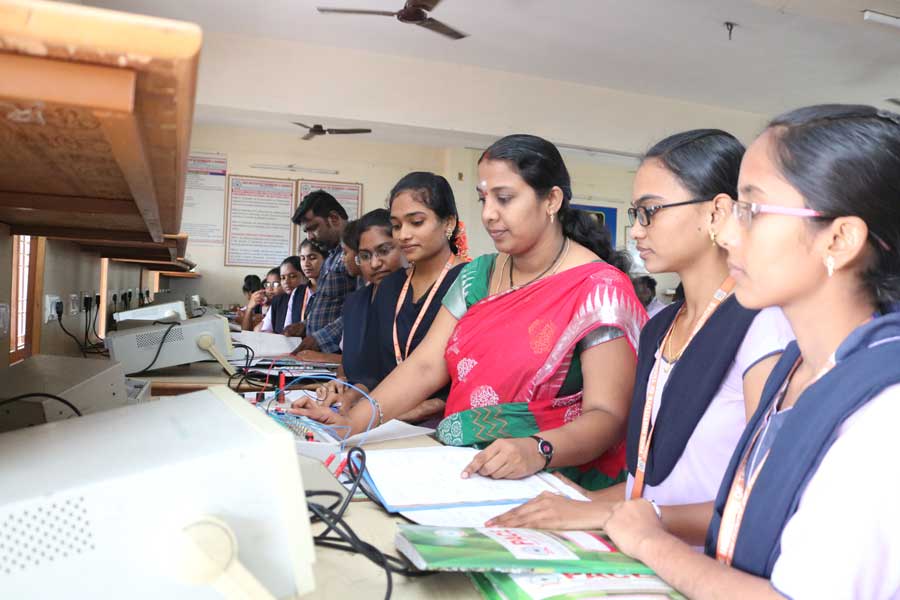
Analog Circuits Laboratory.is to understand the circuit configurations and connectivity of BJT and FET Amplifiers and Study of frequency response Design and test of analog circuits using OPAMPs Understand the feedback configurations of transistor and OPAMP circuits Use of circuit simulation for the analysis of electronic circuits. Students to learn about the circuits using of op-amp Ics’s and Transistors.
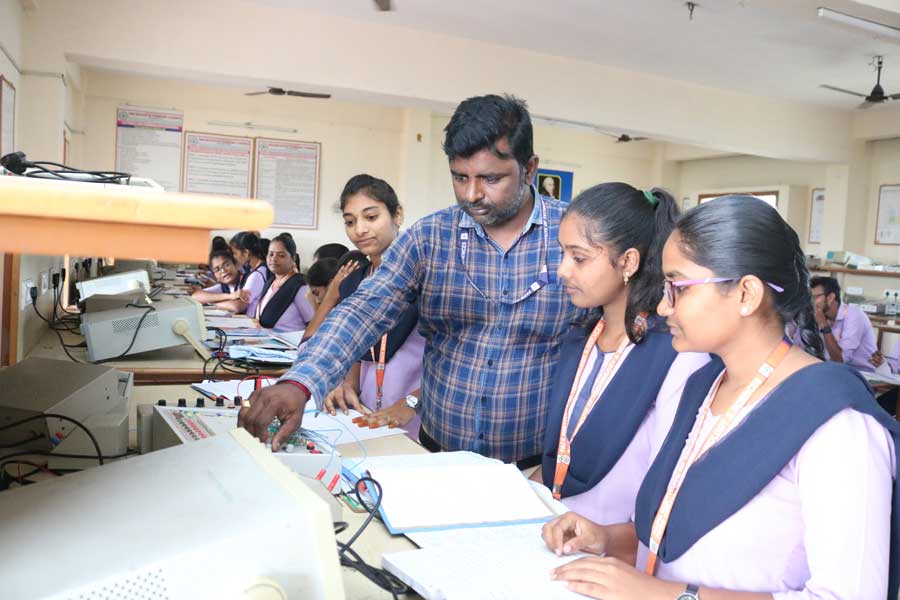
Signals and system Laboratory is a practical experience with the generation and simulation of basic signals, using standardized environments such as . Experiments cover fundamental concepts of basic operation on matrices, generation of various signals and sequences, operation on signals and sequences, convolution, autocorrelation and cross correlation between signals and sequences. The objective of this laboratory is to enable the students to acknowledge with basic signals, and system responses. They can critically analyze the behaviour of their implementation, and observe the specific limitations inherent to the computational platform like MATLAB.

A Switching theory and logic design Laboratory of ECE Department lays the strong foundation or understanding, designing and implementing digital circuits starting from a gate level to a simple digital system. This helps the students to convert the basic ideas into an actual working prototype. The lab provides facilities for software simulation using state-of-the-art tool and hardware implementation on digital trainer kit.
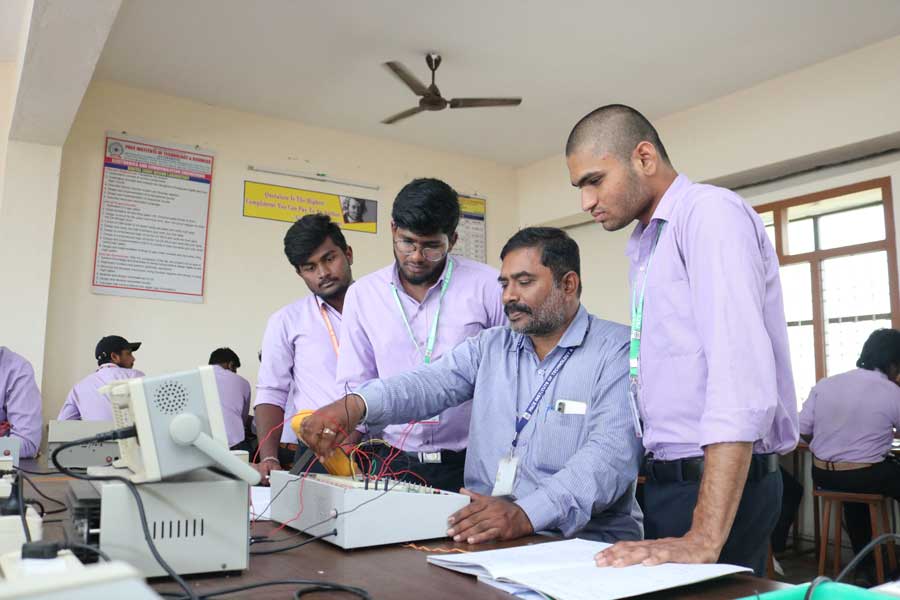
The main objective of this lab is to understand basic theories of analog communication system to design and implement analog modulator and demodulator and understand the applications of analog modulator and demodulator circuits, and to investigate signals in time and frequency domain. Students construct and analyze circuits on analog communication transmitter and receiver. Students conduct experiments to understand the signals available at different stages of AM and FM receivers. The objective of this course is to familiarize the students with different blocks in digital communication by constructing and then testing different digital modems and codec.

The main aim of this lab is to provide the practical knowledge of the Integrated circuits to the students. Students are made familiar with Linear as well as Digital applications of Integrated circuits. Students are made to design the application circuitry by utilizing the basic Integrated circuits. This would enable them to choose the appropriate IC for required application.
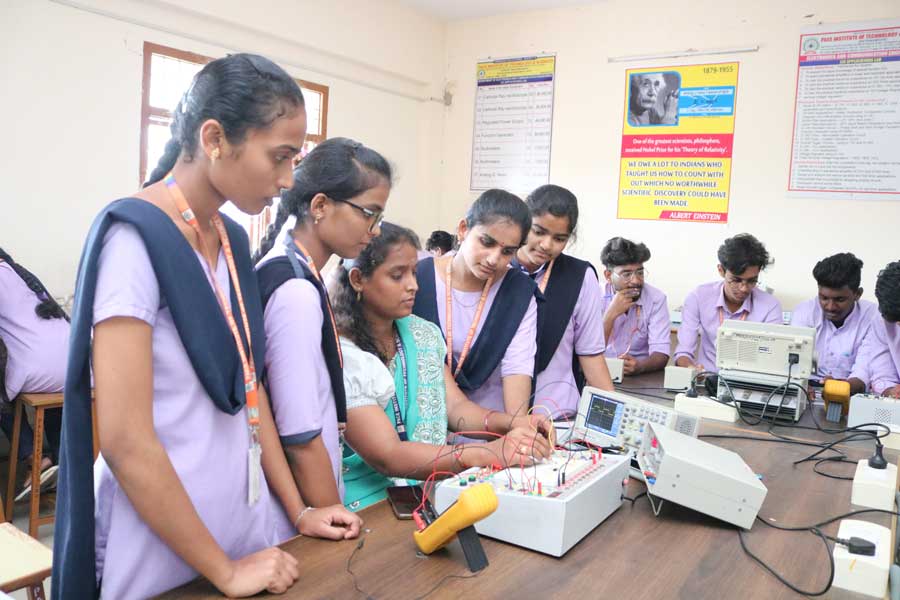
The Digital Communications Lab are a collection of self-contained boards that can be used together to form a comprehensive series of digital experiments and provide the requirements for gaining an understanding of digital communications. The boards have built in power supplies, test points, switched faults, inputs, outputs and functional blocks

Microprocessors and Microcontrollers laboratory course helps the students to develop their knowledge on processor architecture and the programming skills. This laboratory course provides hands-on experience to interface I/O devices, perform A/D and D/A conversions, design traffic light etc. The skills acquired through the experiments help the students to do their projects and enhance their knowledge on the latest trends and technologies. This laboratory provides facilities for the use of 8/16 bit microprocessors/microcontrollers and their interfacing for different applications, using hardware and software concepts to meet industry standards.
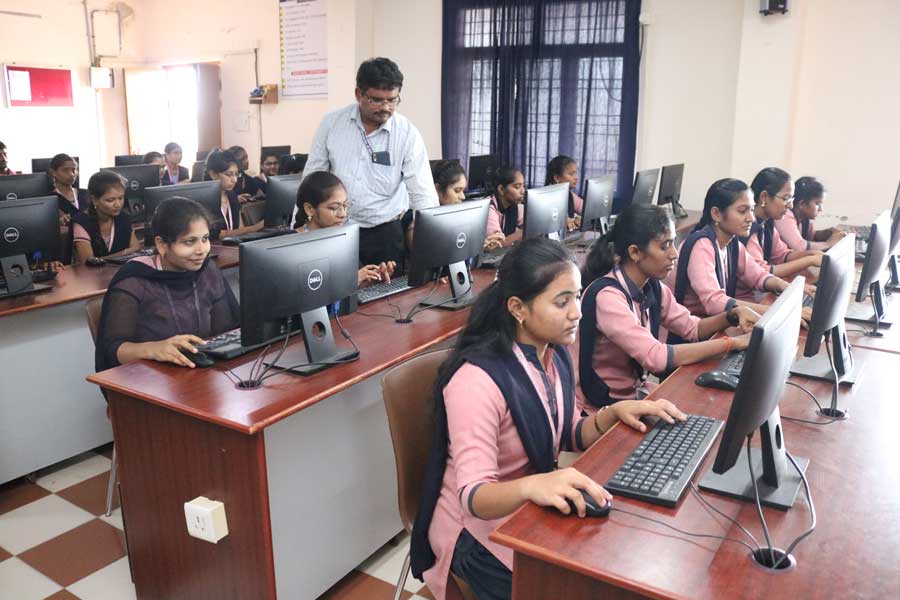
The VLSI-Lab is a practical laboratory for the design of integrated digital circuits (ASICs), also known as chip design. In this laboratory, students design digital circuits in the form of a microcontroller with peripheral modules. Furthermore, all design phases of the chip layout process are carried out, so that the developed circuits could theoretically be manufactured as a micro chip. During the different phases of the lab, the students design, specify, implement and verify digital circuits with hardware description languages, industrial EDA tools, FPGA-based rapid prototyping, and hardware test setups.
In this year, the target application is a chip design students gain knowledge about project planning, development work and teamwork. At the same time, students acquire specialized knowledge in their own work with used tools and hardware description languages. The goal is the successful and self-developed completion of the project and the exchange of the knowledge gained in teamwork.
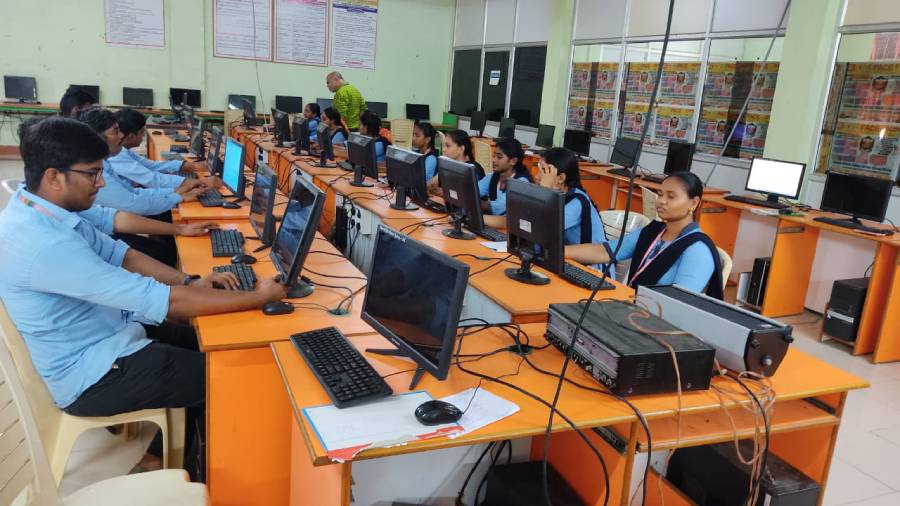
This laboratory course builds on the “Microwave communication. The course aims at practical experience with the process of the microwaves in the microwave transmission lines. Experiments cover the propagation of the electromagnetic waves in the waveguide at microwave frequency. Students experiment with transmission line propagation, antennas and microwave circuit components. The microwave laboratories provide the necessary hardware & software support for training the students in the area of RF and Microwave Engineering. It offers design, analysis and simulation of various components and devices to understand the basics of RF and microwave engineering.
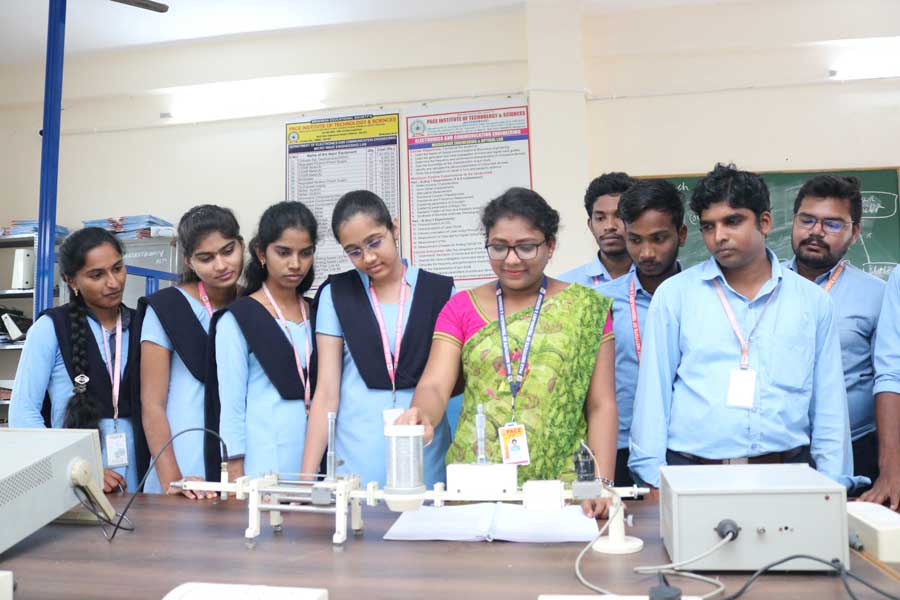
To skill the undergraduate and postgraduate students in the IoT and Embedded system design utilizing state of the art hardware boards and softwares as per industry standards. • To enhance research activities in different application areas of IoT like smart home, smart village, smart healthcare, smart grid, smart agriculture, industry 4.0 and wearable IoT devices etc.
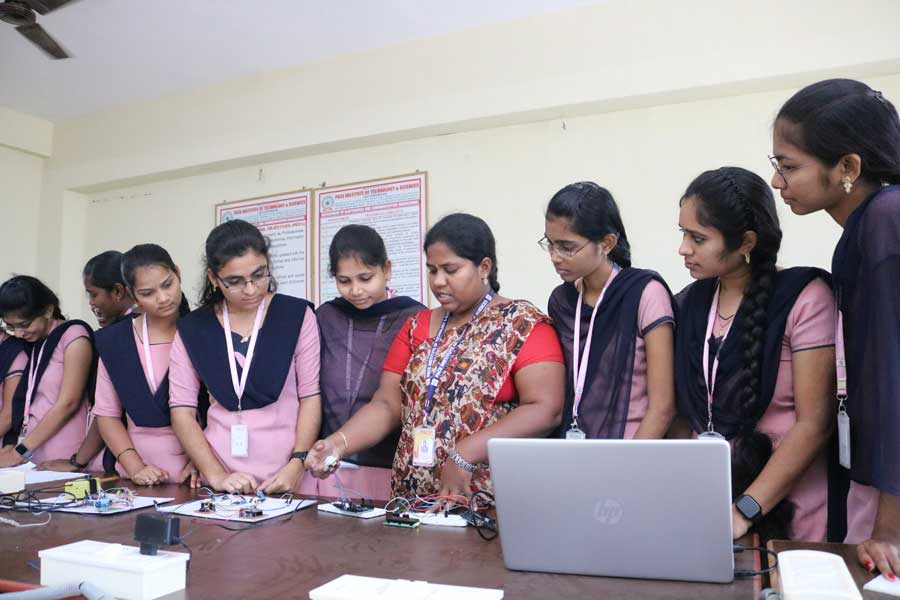
Digital Signal Processing Lab is used by UG students in core and elective course on Digital Signal Processor. Our laboratory presents an opportunity for students to check out their signal processing algorithms, from students' laboratory experiments to high-level research topics, in real situations. The lab is well equipped with 31 number of high performance computers. Software packages such as MATLAB with Simulink and Code composer studio are installed in the systems. The lab has Texas Instruments DSP kits for carrying out various advanced experiments.
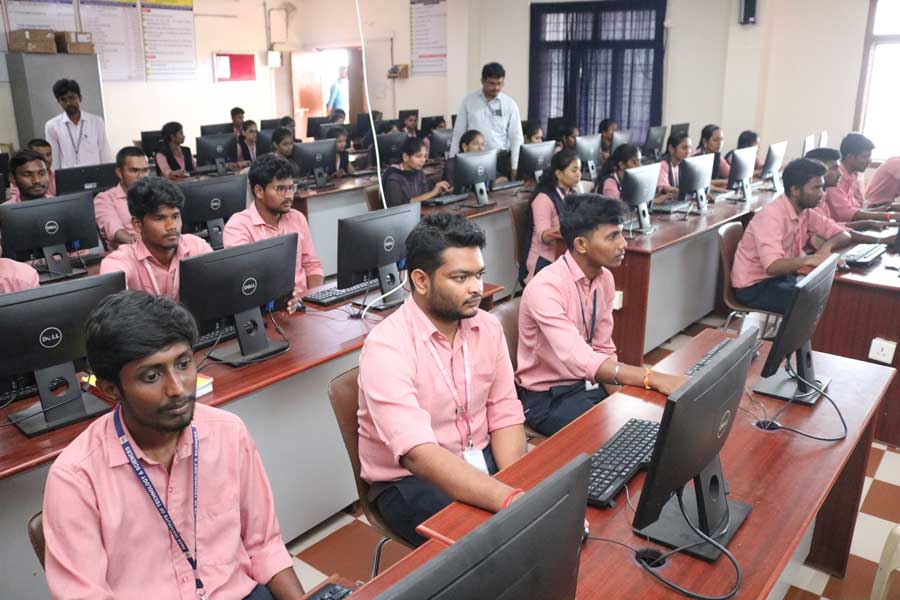
The primary purpose of the Project Laboratory in our Electronics and Communication Department is to provide the space and resources needed by students to complete, their main project and mini project work. The laboratory also serves as a meeting location for groups of students working on team projects. Most of the students are utilized this project laboratory to work on supplemental learning projects to enhance their understanding of class and lab assignments.
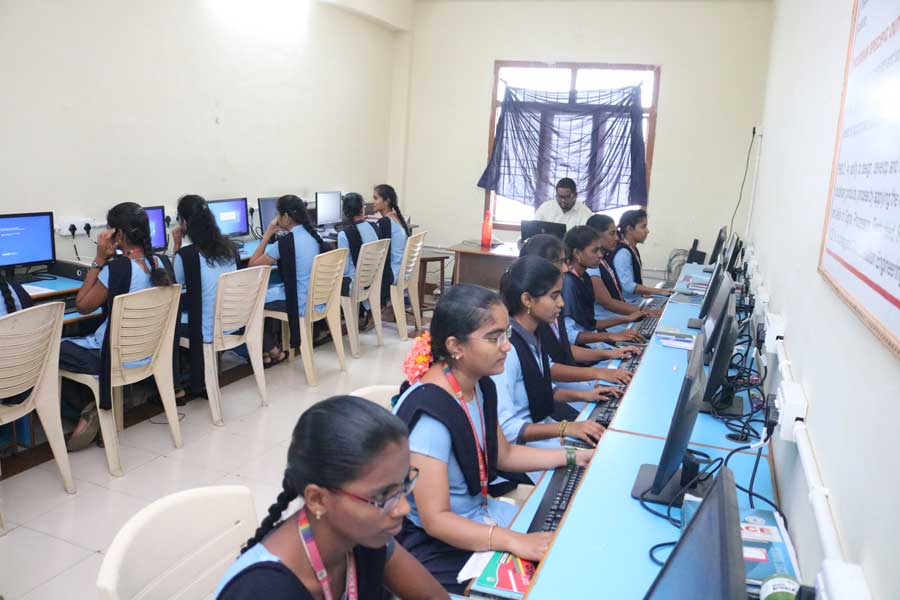
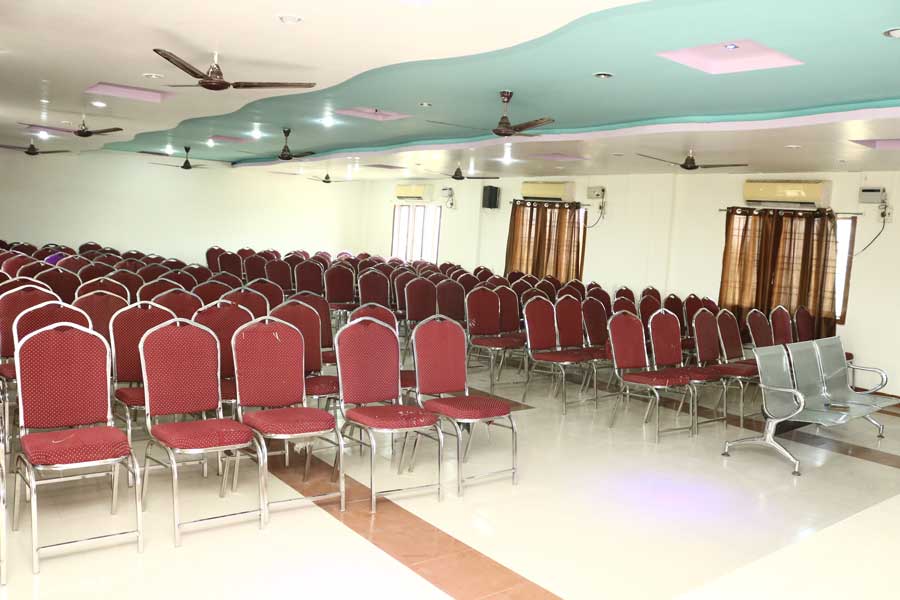
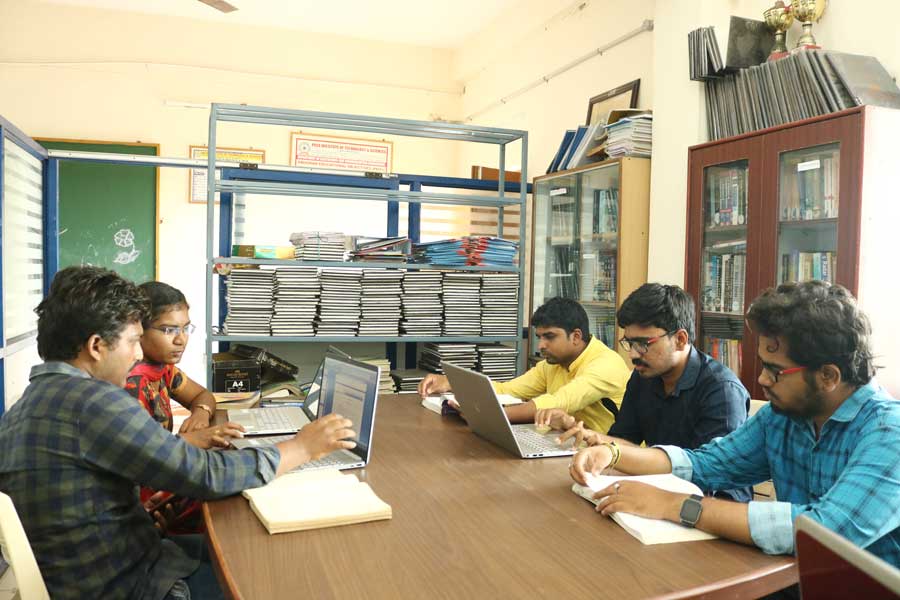
| Sl.No | Roll No | Name of the Student | Year | % |
| 1 | 19KQ1A0419 | MUTHYALA ANUSHA CHANDANA | 2023 | 86.9 |
| 2 | 18KQ1A0465 | IKKURTHI VENKATA GOPI CHANDANA | 2022 | 87.5 |
| 3 | 17KQ1A04D8 | NALLURI KAVYA RUPA | 2021 | 82.8 |
| 4 | 16KQ1A0410 | MUTHA.SWARUPA RNAI | 2020 | 82.3 |
| 5 | 15KQ1A0426 | SARVABHOTLA RISHITHA | 2019 | 86.63 |
| 6 | 14KQ1A0407 | GADDAM ESWARI PRIYANKA | 2018 | 86 |
| 7 | 13KQ1A0489 | SHAIK SAHITHI | 2017 | 80.9 |
| 8 | 12KQ1A0414 | CH.AKHILA RATNAM | 2016 | 84.6 |
| 9 | 11KQ1A0493 | RAMALINGAM UDAYANI | 2015 | 81.85 |
| 10 | 10KQ1A0456 | THARAPAREDDY SWETHA | 2014 | 86.8 |
| 11 | 09KQ1A0457 | VUNDAVALLI VIRAJI | 2013 | 88.3 |
| 12 | 08KQ1A0433 | MADDISETTY DIVYA | 2012 | 86.3 |
© PACE INSTITUTE OF TECHNOLOGY AND SCIENCES (PACE ITS)